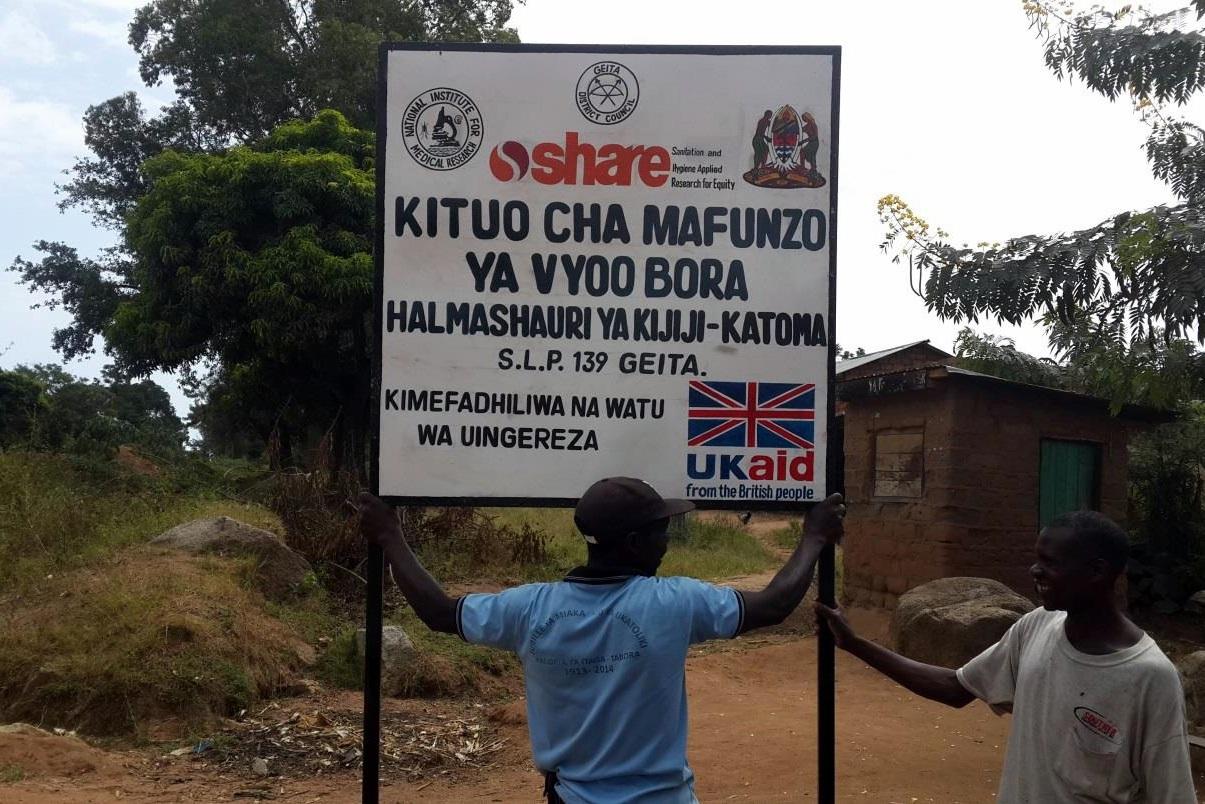Scaling Up Mtumba

© NIMR/Yolanda Mbatia. Artisan cementing a signpost indicating directions to the sanitation centre at Katoma village in Geita.
About
The Mtumba approach to sanitation and hygiene draws on the best practices of existing participatory and promotion methodologies, to create demand for hygiene and sanitation, adapting them to the national context. Named after the village in the Dodoma region of Tanzania where it was devised, the rationale at the basis of the Mtumba approach is the awareness that existing sanitation promotion methods had thus far failed to change practices and behaviours in Tanzania. Mtumba was piloted from 2008 to 2011 in Singida, Tabora and Manyara regions, with funding support from Irish Aid.
An evaluation of the Mtumba pilot study, conducted by the National Institute of Medical Research (NIMR) in Tanzania and based on data gathered through in-depth interviews with key informants, focus groups, household survey and desk research, found that Mtumba had generated positive behaviour change in building new toilets, improving existing ones and increasing hand washing with soap.
In 2013, SHARE partnered with WaterAid Tanzania to further explore potential for scaling-up the Mtumba approach. We co-funded the development of guidelines for implementing Mtumba, which were used to inform the scale-up of Mtumba within the context of the Tanzanian National Sanitation Campaign.
Following these successes, SHARE funded NIMR to carry out further research into how the Mtumba model could be further expanded as a produce for scale-up.
